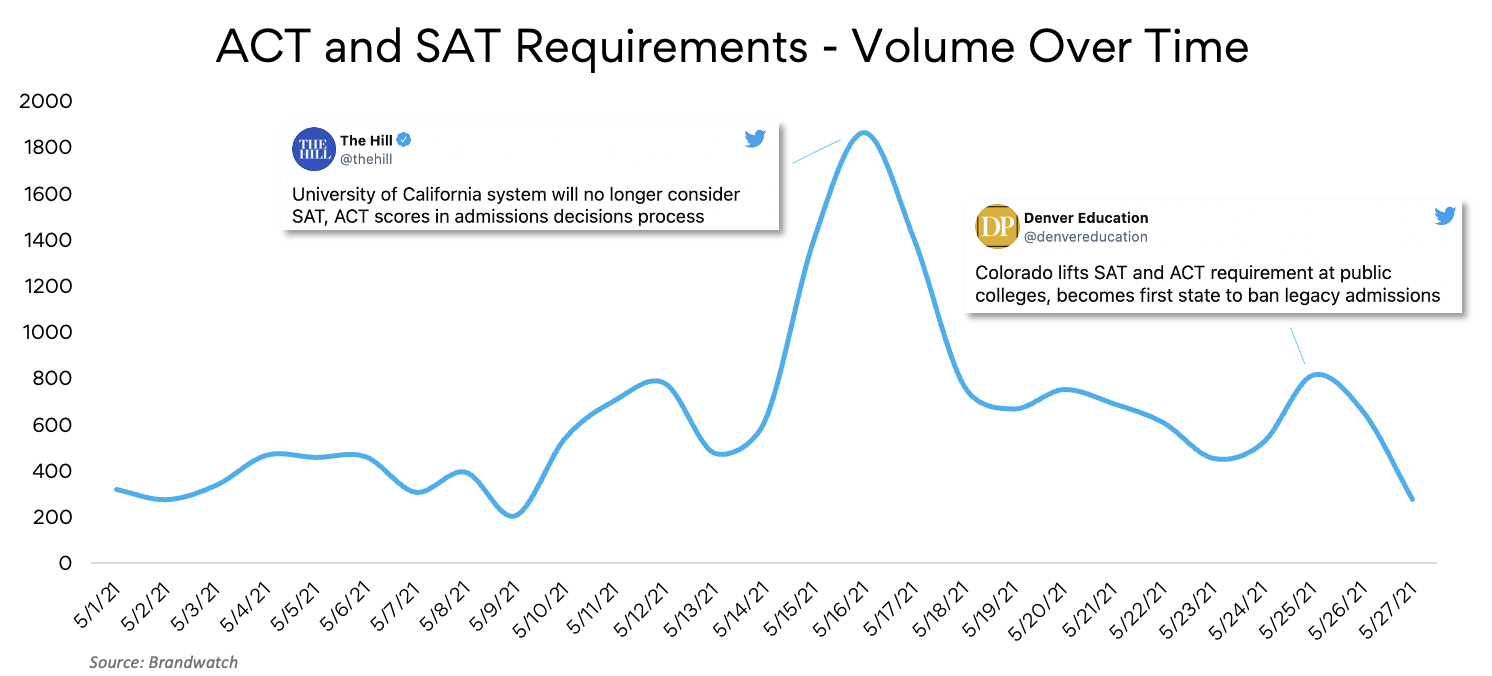The excerpt below is a component of the weekly Higher Ed Issues Landscape Report, which analyzes the top conversation trends in higher education for the past week and highlights qualitative and quantitative insights on the topics and universities that drove coverage.
An HTML version of the full report is available through this link
Since the University of California system announced earlier this month that it would stop considering SAT and ACT scores in decisions for admissions and scholarships, there has been an increased focus on standardized tests and whether they are discriminatory against applicants on the basis of their race, wealth, and disability.
Last Tuesday (5/20), all Washington public baccalaureate institutions announced that they will permanently make the SAT and ACT optional, and just yesterday (5/26), Colorado Gov. Jared Polis signed a bill into law stating that Colorado’s public universities are no longer required to have applicants submit standardized test scores. Each of the university systems and government authorities above specifically noted that the desire to create a more “holistic” and “equitable” admissions process drove the decision.
A Deeper Look at the Response to SAT and ACT Requirements:
- There have been 640 articles published this month regarding universities requiring SAT and ACT scores, garnering more than 106K social media engagements
- Reactions to online news have been mixed, with 30% expressing surprise, 19% expressing anger, and 11% loving the development. Conversation around the topic has been active around equitability implications more broadly and did not focus solely on race or socioeconomic status as factors (source: BuzzSumo)
- Positive mentions around university announcements have pointed to the UC system’s study around the impact of the tests on underrepresented populations, suggesting that the change was necessary
- Negative mentions expressed concern that not requiring certain standardized tests might lead to universities “dumbing down” curriculum to compensate in the future and suggested that the change might make admissions more difficult for prospective students who went to “difficult” high schools where it is challenging to maintain a high GPA
- Leading news articles on the topic in terms of engagement leaned mostly neutral towards the subject of standardized testing requirements and focused primarily on the University of California system being the first to put these new changes into effect
Notable Developments:
Two weeks ago, we highlighted cybersecurity as a relevant vulnerability for higher education institutions. This week, a new global partnership announced an initiative to combat cybercrime in the higher education space. The partnership includes education and research bodies within the U.S., U.K., Canada, and Australia.


